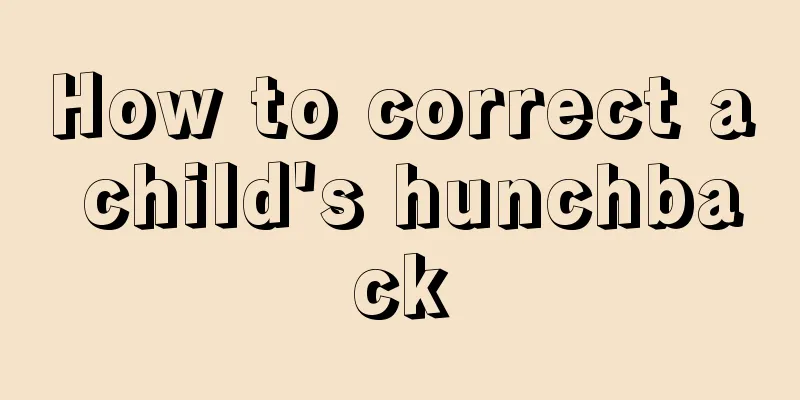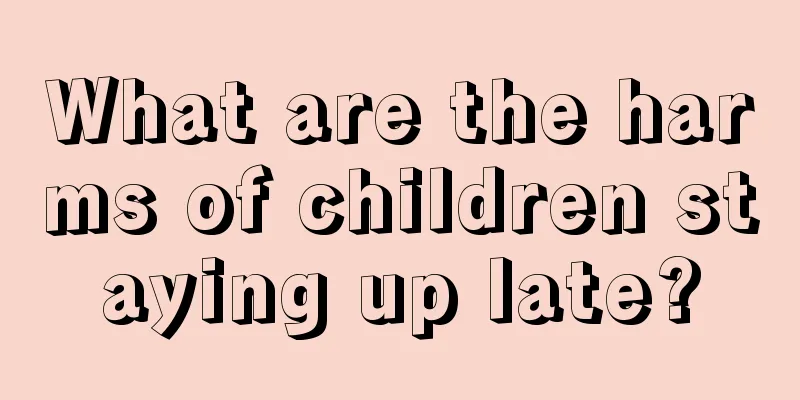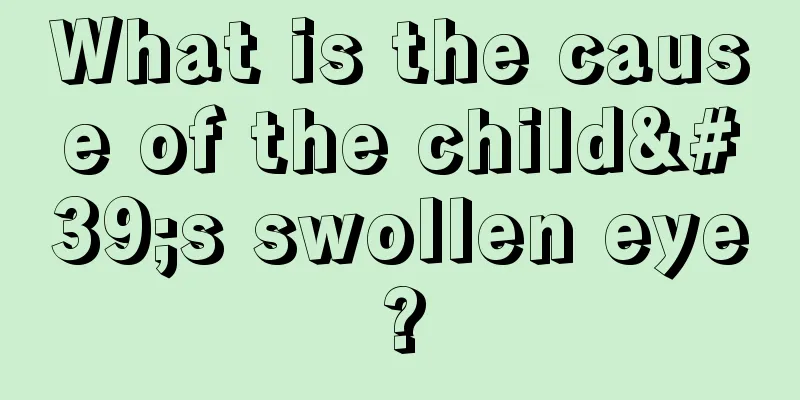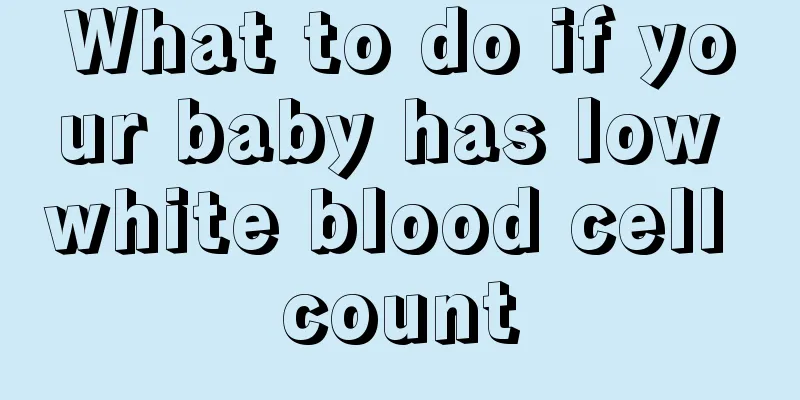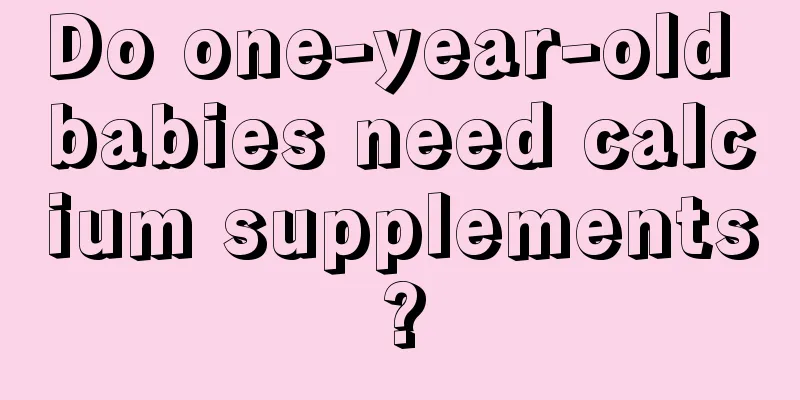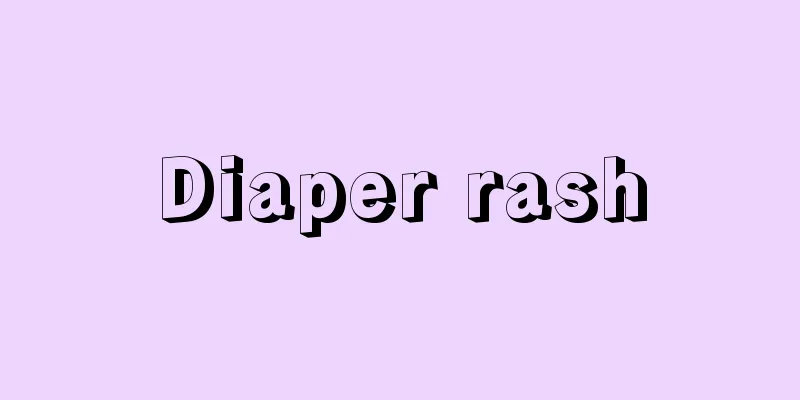What should I do if my child has a fever of 39.5 and won't go away?
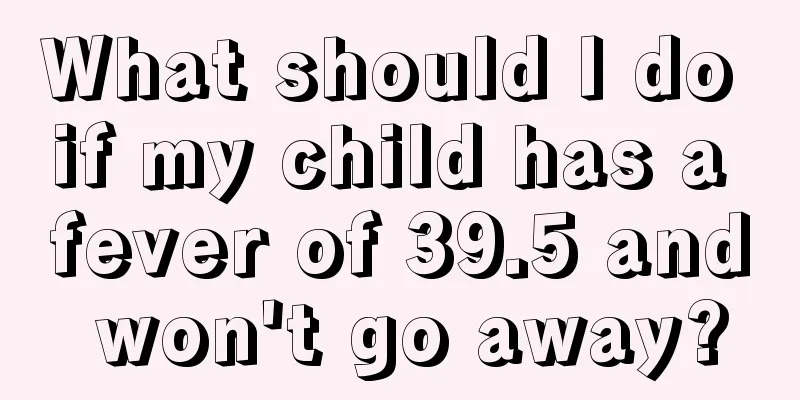
|
Every child has experienced some health problems during their growth, among which fever is the most common disease. There are many reasons for fever, such as common cold or tonsillitis. Generally, parents have certain experience in helping their children relieve fever in time. However, when a child has a fever of 39.5 and does not go away, parents are always particularly worried and afraid. Let's learn about what to do when a child has a fever of 39.5 and does not go away. What should I do if my child has a fever of 39.5 and won't go away? When your child has a high fever, use the following physical fever-reducing methods to make your child feel more comfortable: 1. Reduce clothing and quilts: When your child has a fever, remember not to let him wear too many clothes or cover him with too thick quilts. This traditional method of "covering the body to sweat" is not conducive to heat dissipation and fever reduction. Instead, it may cause febrile convulsions due to overheating. For many young babies, the body temperature can be lowered by simply reducing the number of clothes and blankets. 2. Drink more water: It helps to sweat and dissipate heat. In addition, water has the function of regulating temperature, which can lower body temperature and replenish the water lost by the body. 3. Cold compress: This method is simple and easy. Apply a cold towel to the forehead. After the towel becomes hot, soak it in cold water and apply it again. For older children, using cold water bags or ice bags may be more effective. 4. Wipe the whole body with warm water or take a bath: Undress the child, rub the whole body with a towel in warm water (about 37°C) or take a bath. This can dilate the blood vessels in the skin and increase heat dissipation; in addition, when water evaporates from the body surface, some heat will also be lost. 5. Low-temperature chamber method: Place the sick child in an environment with a room temperature of about 26°C to slowly lower the body temperature. In order to allow the skin to come into contact with the outside air and help cool down, people need to wear less clothes. If conditions permit, use air conditioning to lower the room temperature. This method is suitable for babies under 1 month old, especially in summer. Just open the baby's clothes and put them in a cool place. Things to note when a child is sick and has a fever 1. It is not a big deal if the temperature is below 38.5℃, but it should not be taken lightly. Always observe your child's mental state, measure his or her body temperature, and give him or her water frequently. Don't dress your child in too many clothes. Keep the room ventilated and prepare antipyretics for babies over 6 months old. 2. If the temperature is between 38.5℃ and 39.5℃, take antipyretics according to the instructions. Ten minutes after taking the medicine, put more clothes on your child. After half an hour, take off the extra clothes and wipe the child's body with warm water. You will see sweat coming out immediately and the child's body temperature will slowly drop. 3. Fever itself means that there is a virus in the child's body, and the child is also fighting the virus. The problem will not be solved in one go. The temperature will go up again within 4-6 hours, and you can proceed to the second step. 4. After 4-6 times, the child's temperature will be under control. 5. If the fever is above 39.5℃, you must go to the hospital. There will be no damage to the brain within 4-8 hours, but the longer the time, the worse it is for the child. At this time, you can use alcohol to wipe the palms and soles of your child's feet, but don't wipe too much. This method can quickly reduce the temperature. If there is no alcohol, you can directly wipe the child's body with tap water and then go to the hospital immediately. The above is an introduction to what to do if a child has a fever of 39.5 and does not go away. When encountering such a phenomenon, parents must pay attention to it and take the baby to the hospital for examination and treatment. In addition, after giving the baby antipyretics, the baby's body temperature must be monitored at any time, and the child must be given more boiled water. In addition, the baby must also be cooled physically at the same time. |
<<: What's wrong with the child's red butt?
>>: What to do if a one and a half year old child has a fever
Recommend
What are the symptoms of a baby's poor spleen and stomach?
Parents should pay attention to and understand th...
What happens if children drink vitamin C effervescent tablets?
As we all know, in addition to protein, vitamins ...
What to do if a child has a clavicle fracture
There are some unavoidable injuries to young chil...
What should I do if my child stays in bed in the morning?
Many children have the habit of staying in bed in...
What to do if your baby has diarrhea and watery stools
When many parents find that their baby has diarrh...
What are the symptoms of common childhood diseases?
Everyone should be familiar with common pediatric...
What are the symptoms of chlamydia infection in children
Children will always have many common diseases in...
What can children eat to enlarge their breasts?
In modern society, having a pair of good breasts ...
What should I do if my baby likes to bite his lower lip?
Nowadays, many children are basically only childr...
When should babies supplement calcium and cod liver oil? Time it right
Nowadays, many young parents know that they must ...
What to do if your child is allergic to milk
Newborn babies need a lot of nutrients to promote...
When praising children, try to avoid using "you are awesome"
Key points: "Baby is great", this kind ...
Baby spitting up milk does not mean spilling milk, don't be silly and confuse it
Many parents do not understand the difference bet...
What to do if the baby falls on the back of the head
Many parents are not careful when taking care of ...
What are the medications for neonatal jaundice?
Many newborn babies will show symptoms of jaundic...
